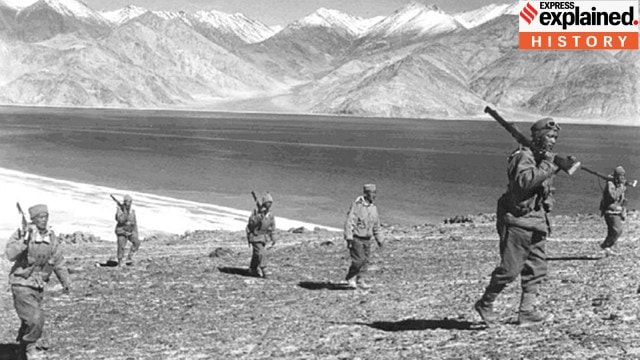Yashee

Sixty-one years ago today, on November 21, 1962, China declared a ceasefire in its war with India. The 1962 conflict was a major humiliation for New Delhi, denting the image of its first Prime Minister, Jawaharlal Nehru, forever. For China, it was a loud proclamation of might, for neighbour India as well as the West. However, while China had dominated the fighting comprehensively, the territorial gains were not proportionate. In the west, it did capture Aksai Chin, but in the east, China withdrew 20 km behind the McMahon Line.
Why did China declare a ceasefire in a war it seemed to be easily winning, and why did it withdraw behind the border it had crossed to start the fight? Here’s a brief explanation of what experts have seen as the two major reasons.
Why the 1962 India China war began
While many factors contributed to active war finally flaring up on a restive border, many have blamed Nehru’s ‘Forward Policy’ for “provoking” China. Put very briefly, the Forward Policy involved the Indian Army establishing outposts in territories disputed by China. Some have argued that such actions by an ill-prepared and ill-equipped army pushed China to attack, and defeat, India.
Others have pointed out that the war was triggered by India’s decision of granting sanctuary to the Dalai Lama after he fled Tibet under Chinese oppression, and from China’s desire to be seen as the undisputed Asian leader. Also, this was the time when resentment was rising in China against Mao Zedong’s Great Leap Forward policy to forcibly modernise and industrialise the country, and a successful war was one tactic most guaranteed to restore his popularity.
Why the war ended
The 1962 war, which hangs so heavy on the Indian imagination, lasted for barely a month. China invaded India from two sides, in the west around the Ladakh region and in the east in the Northeast Frontier Agency (today’s Arunachal Pradesh and parts of Assam). On both fronts, its victories were swift and decisive. It managed to capture the strategically crucial Tawang (in the present Arunachal Pradesh), and advanced further.
With the troops ill-equipped and the political leadership caught by surprise, things were not looking too good for India. Then, on November 21, China declared a ceasefire. Why did it do so?
The first reason is that through its own rapid advance, China had managed to over-stretch its supply lines. Winter was about to set in. The Indian army, despite its many handicaps, had fought valiantly, to the last man and the last bullet, in adverse mountainous terrain. With the Chinese soldiers now closer within Indian territory, the Indian Army posed a far more serious challenge. Also, the mountain routes would soon be snowed in, and it would be difficult for China to both retreat through the Himalayas, and have supplies and reinforcements sent over. Declaring a ceasefire while it was still in a dominant position was a wiser course of action than running these risks.
The second factor is that Nehru, realising the gravity of the situation, had asked the US and the UK for help, and both had responded. As Bruce Riedel, American security analyst, wrote for Brookings, “President John F Kennedy immediately ordered an airlift of weapons and supplies to India. The Royal Air Force joined in the airlift to rush equipment to India. A massive global operation was underway to help India.” This would have meant the conflict escalating beyond what China was comfortable with.
About the international opinion changing, RS Kalha, former Indian Ambassador to Iraq, wrote for the Manohar Parrikar Institute for Defence Studies and Analyses, “Had the Chinese stopped after capturing Tawang, which they did, and not penetrated further south into Indian Territory after 24 October 1962, it would have been extremely difficult for India to dislodge them. For one, world public opinion would not have been so deeply aroused; the Western powers would not have taken the issue so seriously…”
It is interesting to also look at what the Chinese opinion on the issue is. Hong Yuan, when he was deputy secretary-general and researcher with the Center of World Politics at the Chinese Academy of Social Sciences, wrote for the Global Times, “…when the sound of China’s artillery reached New Delhi, the PLA decisively halted its military operation and pulled back its troops. The PLA’s performance in the war shocked Western strategists and did its country proud. Its victory has also brought peace on one of China’s most important borders for half a century. War is a negotiating approach, but not a goal. Similarly, China’s decision to fight back against India in the 1962 border war was to strike a peace with its neighbour.”
No comments:
Post a Comment